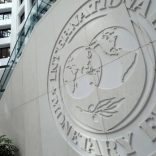Mozambique: Government to cut "ineffective" tax exemptions, tax informal economy, use AI
Hidden debts should not be repaid – UN human rights expert

The impact of cyclone Idai, which struck central Mozambique on 14 March, boosts the case for Mozambique not repaying any of the “hidden debts” inherited from the previous government, under President Armando Guebuza, according to United Nations human rights expert Juan Pablo Bohoslavsky.
In an article published on the website of the office of the UN High Commissioner for Human Rights, Bohslavsky, whose area of expertise is foreign debt and human rights, argues that “The realisation of economic, social and cultural rights in Mozambique should not be jeopardised by the servicing of the country’s debt and in particular its ‘secret loan’ component”.
This refers to the over two billion US dollars lent by the banks Credit Suisse and VTB of Russia to the three fraudulent Mozambican companies Proindicus, Ematum (Mozambique Tuna Company) and MAM (Mozambique Asset Management). The loans were only possible because government officials, notably the finance minister of the time, Manuel Chang, signed illicit guarantees, ensuring that, in the likely event of the companies going bankrupt, the Mozambican state would take full responsibility for paying the debts.
Recent investigations, notably by the US Justice Department, have shown that the stated purpose of the three companies – to boost coastal protection and establish a tuna fishing fleet – was fake, and the real aim of the projects was illicit enrichment, in a scheme cooked up by executives of the Abu Dhabi based group Privinvest (which became the sole contractor for the companies), bankers at Credit Suisse, and several senior Mozambican officials.
Bohoslavsky noted that in 2016 “a Parliamentary Commission of Inquiry concluded that the loan guarantees were illegal and unconstitutional, and in violation of the budget law. An audit also established that the process for providing the guarantees appeared to have been inadequate while also identifying potential conflicts of interest”.
He insisted that “Human rights and the devastating impacts of Cyclone Idai must imperatively be considered in debt discussions”.
“Human rights must be at the centre of efforts to deal with the cyclone’s consequences”, urged Bohoslavsky. “The disaster should not deepen the debt crisis while debt repayments should not limit the necessary fiscal space for adequate response”.
He urged Mozambique and its creditors, “to conduct a human rights impact assessment of debt strategies, potential debt relief programmes and restructuring, as well as of economic reforms recommended, such as further fiscal consolidation. The impact of debt servicing on the realisation of human rights, and core values of transparency, public participation and accountability, must be considered in borrowing decisions.”
Furthermore, “lenders have a duty to ensure that government officials are authorised under domestic law to enter into such agreements”, he stressed. In the Mozambican case officials such as Chang clearly broke the budget laws of both 2013 and 2014, which set strict limits on government loan guarantees. They also violated a clause in the Mozambican constitution under which only the country’s parliament, the Assembly of the Republic, can approve such debt.
“While sovereign debt contracts are binding obligations, exceptions do exist”, Bohoslavsky continued. “Allegations of bribes and corruption that emerged when the secret loans came to light should be considered. In this context, loans allegedly taken out against rules aimed at ending corruption could be considered as void; and they should simply not be repaid.”












Leave a Reply
Be the First to Comment!
You must be logged in to post a comment.
You must be logged in to post a comment.